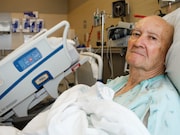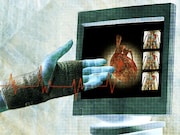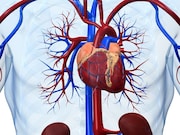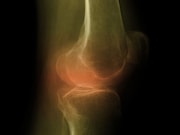Plant-Based Diets May Lower CV Disease, Deaths in Middle-Aged
Association also found for reduction in all-cause mortality but not incident cardiovascular disease
Strong SSRI May Be Tied to Small Decrease in Ischemic Stroke Risk
Rate of myocardial infarction similar with current use of strong, weak selective serotonin reuptake inhibitors
Transdermal Optical Imaging Shows Promise for Measuring BP
Models could predict systolic, diastolic, pulse pressure within 5 ± 8 mm Hg of reference measurements
High-Intensity Lipid Lowering May Aid Very Elderly After ACS
Benefit of simvastatin-ezetimibe combo after acute coronary syndrome greatest for patients ≥75 years
Low Specificity Limits Use of Focused Cardiac Ultrasonography
FoCUS may help rule out ventricular dysfunction, valvular disease in low-risk patients
Lifestyle Counseling Frequency, CV Outcomes Linked in Diabetes
More frequent counseling tied to lower incidence of death, CV events in adults with diabetes
Guidance Issued for Research Use of Cardiac MRI After MI
Index CMR should be performed five ± two days after reperfusion
Risk for Cardiovascular Deaths Increased With Hip, Knee OA
No increased mortality found for most causes of death
BP, Waist Circumference, Lipids Should Be Measured Regularly
Lifestyle management should be priority for prevention of ASCVD, T2DM in patients at metabolic risk
Electric Fans Help in Hot, Humid Conditions but Not Hot, Dry Ones
In very hot, dry conditions, fan use worsened rectal temperature, heart rate, whole-body sweat rate



















